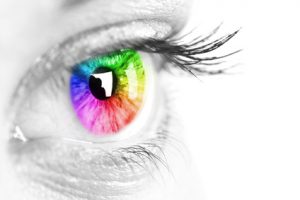Diversity In Science Fiction And Why It Matters
Firstly, I’d like to thank fellow sci-fi writer Andrew Knighton in Great Britain for featuring me as a guest blogger on his site. This post is a continuation of a discussion that we posted earlier this month about this diversity question in science fiction.
Here’s my guest post on Andrew’s website: http://andrewknighton.com/2014/09/25/diversity-in-science-fiction-and-why-it-matters-a-guest-post-by-austin-dragon/
What is Diversity to Me? I learned a long time ago from my stint in political activism that it is very important to define words and terms from the start. It’s the reason that most political debates are pointless and real solutions are rare. Different groups respond differently to the same words whether it’s liberal Democrats and conservative Republicans in America, or two different groups of Labor and Conservatives in England, respectively.
As a Black man born in one of the most diverse cities in the world, New York city, living in another overseas for a year, when I began college—Paris France, and upon my return to the States moved to even more diverse one—Los Angeles, CA, I am obviously at home in diversity.
Unfortunately much of the diversity as defined by many elite has simply devolved into the arbitrary color of a person’s skin. That is not diversity. Diversity is not just race; it is culture, class, language, upbringing, nationality, politics, education, occupation, religion (if applicable), and more. It is a rich tapestry of the story and experiences that make you who you really are. Diversity that is just a game of musical chairs based on skin color is boring.
Also for all this “diversity talk,” people are rightly justified in being annoyed at the “talk with no end” about the subject or a “token” character thrown into a story in a feeble attempt to placate them. Virtually everyone will be Asian in a novel set in Japan or overwhelmingly White if set Sweden, but that’s not what we’re talking about. In the diverse or global societies often reflected in science fiction, demographic reality is not being reflected. Yes, fiction is fiction, but…
Three Reasons Why Diversity in Science Fiction Matters
- It Gives Us a Unique Window on a Problem. One of the brilliant things about science fiction is that it allows the reader to see an intractable problem from other points of view. Often that unique perspective can do more to highlight the issue or strengthen the drama than the same stereotypical characters we keep seeing over and over again.
- It Introduces Us to the New. Over six billion people, hundreds of countries, thousands of religions, tens of thousands of cultures, millennia of recorded human history. Science fiction spends a lot of energy creating new worlds to amaze us when the reality is that there already exists “new worlds” in our own to engage us that we never even knew existed.
- More Diversity Equals Less Tokenism. If we see “real” diversity with meaningful stories, substantive characters, and well-thought out backgrounds, the more the public will expect and demand it. I love Star Trek and always will but even as a child I thought it peculiar that there wasn’t far more diversity in the series knowing what the racial and ethnic make-up of the planet was (and is). Tokenism acts like people are just skin-color and genitalia. Diversity acknowledges and showcases so much more.
Science fiction writers, through this genre, we are in probably the best possible position to reflect the great big, wide universe of…humanity.

Austin Dragon is the author of over 30 books in science fiction, fantasy, and classic horror. His works include the sci-fi detective LIQUID COOL series, the epic fantasy FABLED QUEST CHRONICLES, the international futuristic epic AFTER EDEN Series, the classic SLEEPY HOLLOW HORRORS, and new military sci-fi PLANET TAMERS series. He is a native New Yorker but has called Los Angeles, California home for more than twenty years. Words to describe him, in no particular order: U.S. Army, English teacher, one-time resident of Paris, ex-political junkie, movie buff, Fortune 500 corporate recruiter, renaissance man, futurist, and dreamer.
LATEST RELEASE: Be (Liquid) Cool!






0 Responses
Reading Thy Kingdom Falls, science fiction falls right into place of projection, innovation, what the future holds, coupled with technology. Even addressing diversity in the realm of reading, the author’s statements ring true. The people make the difference. Thank you for the article.